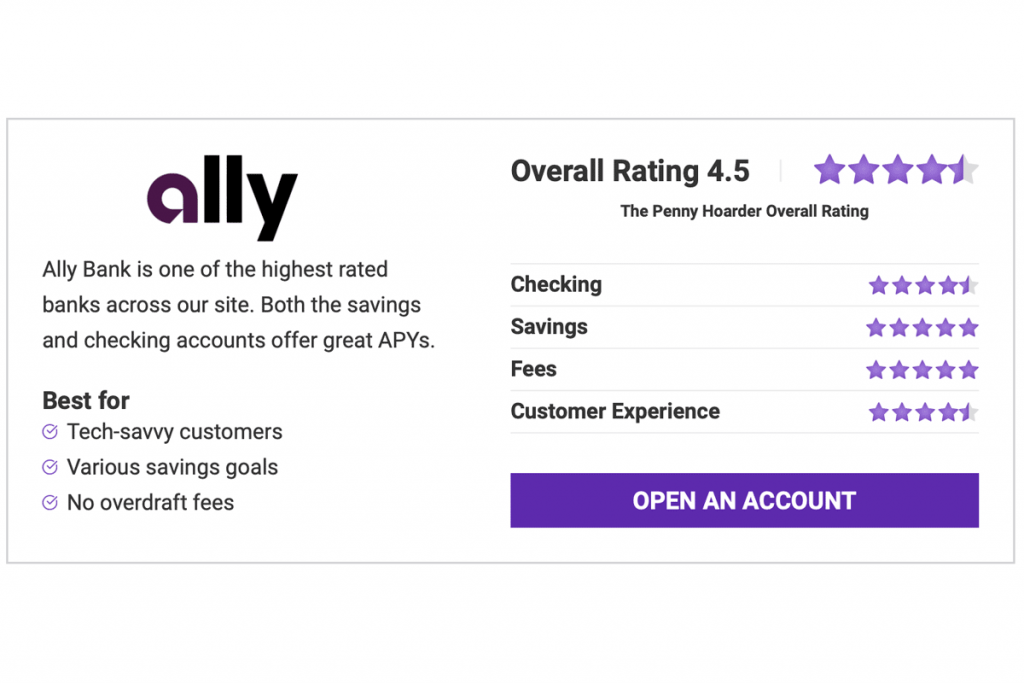Many of us didn’t learn about money growing up.
Personal finance wasn’t taught in schools. Our families didn’t discuss money around the dinner table. We were left to figure everything out on our own.
Let’s take those upbringings as inspiration to do better by the next generation.
17 Money Books for Kids
Set your kids (or other young ones in your life) off on the right foot with these books that introduce them to the basics of personal finance.
Money Books for Younger Kids
Fiction stories like the ones below can help young kids understand concepts like working to earn income and the importance of saving and budgeting.
1. “One Cent, Two Cents, Old Cent, New Cent” by Bonnie Worth
The Cat in the Hat uses rhymes and whimsy to explain the history of currency and its many forms in this book.
2. “The Berenstain Bears’ Trouble With Money” by Stan and Jan Berenstain
Brother and Sister Bear show how spending carelessly quickly leads to empty pockets. This book illustrates the importance of earning, managing and saving money.
3. “The Berenstain Bears’ Dollars and Sense” by Stan and Jan Berenstain
Mama and Papa Bear teach Brother and Sister Bear about money management and writing checks in “The Berenstain Bears’ Dollars and Sense.”
4. “Bunny Money” by Rosemary Wells
When Max and Ruby go out to find a gift for their grandma, they realize just how quickly money can be spent. “Bunny Money” is a good book for teaching kids about how everything has its cost.
5. “Curious George Saves His Pennies” by Margret and H.A. Rey
“Curious George Saves His Pennies” highlights the importance of saving money as George has to do a number of odd jobs and keep his coins in his piggy bank in order to afford the toy he wants.
6. “Just a Piggy Bank” by Gina and Mercer Mayer
Little Critter learns the value of keeping money in his piggy bank in this book. Read it to your kids before they get a piggy bank of their own.
7. “Happy Birthday, Mali More” by Tiffany Aliche
Getting gifts is exciting, but Mali learns material things aren’t the most important thing in this book.
8. “A Boy, a Budget and a Dream” by Jasmine Paul
“A Boy, a Budget and a Dream” teaches kids how budgeting can help you buy the things you really want.
9. “If You Made a Million” by David M. Schwartz
“If You Made a Million” teaches kids the value of different denominations of money and how you can earn more money or owe more money due to interest.
10. “You Can’t Buy a Dinosaur With a Dime”
Pete loves toy dinosaurs, but doesn’t love when his piggy bank is empty. This book sheds light on the decision making that comes along with spending — or saving — money.
Money Books for Older Kids
These non-fiction, but still entertaining, books impart vital money lessons to teens and tweens, including how to invest and how to build a business.
11. “How to Turn $100 Into $1,000,000” by James McKenna, Jeannine Glista and Matt Fontaine
This book is for middle- and high-school students who dream of becoming millionaires. It explains how setting goals, saving and investing can rocket your net worth.
12. “Kid Start-Up” by Mark Cuban, Shaan Patel and Ian McCue
Budding kid entrepreneurs should check out this book. It explores how to go from a business idea to earning your own income.
13. “Finance 101 for Kids” by Walter Andal
“Finance 101 for Kids” gives an overview of basic financial topics that everyone should know before reaching adulthood. This book discusses the dangers of mishandling credit, how the economy affects your personal finances, the impact of giving back to your community and more.
14. “Not Your Parents’ Money Book” by Jean Chatzky
Tweens and teens can learn how to earn money and make smart consumer decisions in this book by money guru Jean Chatzky. It is geared toward readers 10 and up.
15. “The Survival Guide for Money Smarts”
“The Survival Guide for Money Smarts” gives advice to kids ages 9 and up about how to earn, save, spend and give money. It includes stories from real kids who successfully navigated money decisions.
16. “I Want More Pizza” by Steve Burkholder
“I Want More Pizza” aims to make personal finance topics — like debt management, investing, compound growth and goal setting — engaging for teens. It uses real world examples to help high school and college students understand how to become financially independent from their parents.
17. “Investing for Kids” by Allison Tom and Dylin Redling
This book introduces kids ages 8 to 12 to the concept of investing so they can start growing their money at an early age.
Nicole Dow is a senior writer at The Penny Hoarder.
Credit: Source link














